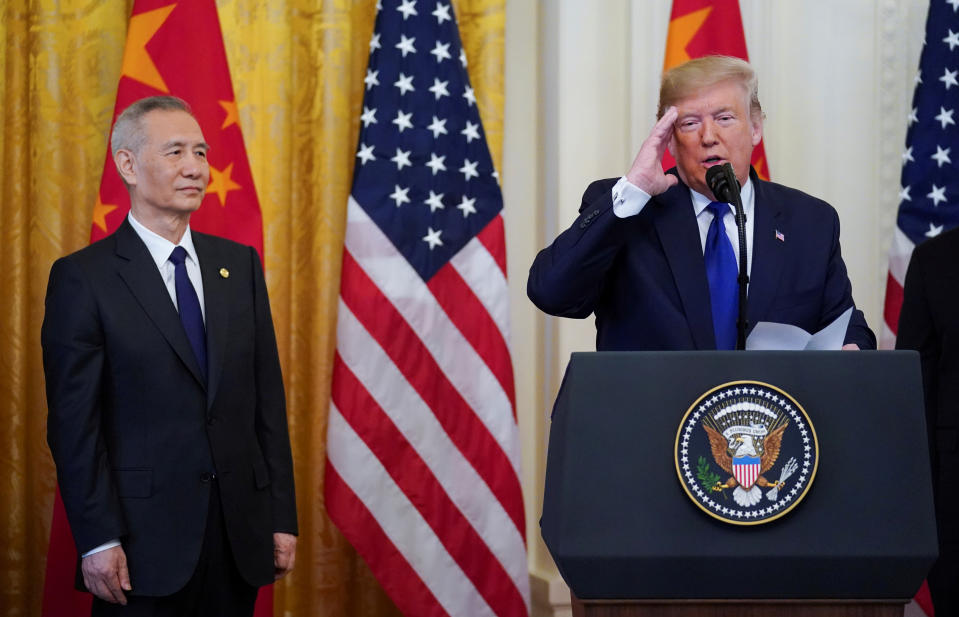Why a Trump re-election could be very bad for markets: Economist
A second term in the White House could embolden President Donald Trump to take a tougher stance in negotiating with China, creating a source of risk for the markets and domestic economy, according to at least one economist.
“There is a real risk that if the president does get re-elected ... he may become unbowed,” Neil Dutta, head of economics for Renaissance Macroeconomics, told Yahoo Finance’s The Ticker. “He doesn’t have the threat of another election weighing on him.”
In other words, with a second term secured, the Trump administration would be free to pursue a more hawkish approach to resolving trade issues with China, without having to worry that such tactics could stir up equity market volatility or disrupt companies’ supply chains and operations in the near-term and jeopardize his presidency.
For Trump, a self-described “tariff man,” those tactics could well involve continuing to “tighten the screws on China even more with additional tariff threats in 2021,” Dutta said.
“I do think that 2020 is sort of the calm with the China issue before a potential cracking yet again,” Dutta said.
‘There’s a real risk around the election’
Other economists, however, have pointed out that a Trump victory in November could be a net positive for the domestic economy and financial markets. In a note last week, Capital Economics economists wrote that Trump would likely usher in another four years of loose fiscal and monetary policy, given his administration’s pledges to cut taxes further after its 2017 tax reform package and Trump’s potential to nominate more dovish candidates to the Federal Reserve.
But even these economists acknowledged the risk to international trade relations a second term for Trump could invoke.

“Arguably the biggest impact of a second Trump term would be overseas,” the economist wrote. “The Phase One agreement between China and the U.S. represents a truce rather than a lasting deal. With China doubling down on its state-led economic model, we expect tensions between the U.S. and China will continue to ratchet higher over the medium term.”
In Dutta’s view, the phase one trade deal signed between the U.S. and China earlier this month was just a temporary salve cooling ongoing frictions between the two countries. Echoing the views of other skeptics, Dutta said he was “not optimistic that we get a phase two deal this year.”
“We’re in the sort of vote-harvesting season so it’s unlikely that anything will happen,” Dutta said. “Now that being said, you know, I think there’s a real risk around the election.”
—
Emily McCormick is a reporter for Yahoo Finance. Follow her on Twitter: @emily_mcck
Read more from Emily:
Bridgewater: Stocks are more expensive in the U.S. than anywhere else in the world
Netflix 4Q subscriber growth tops expectations, but guidance disappoints
Tesla has a ‘key advantage’ over other automakers, analyst says
Why traders playing oil like it’s 2010 are ‘getting their heads handed to them’
Valuations aren’t overstretched after record year for stocks, strategist says
Follow Yahoo Finance on Twitter, Facebook, Instagram, Flipboard, LinkedIn, and reddit.
Find live stock market quotes and the latest business and finance news